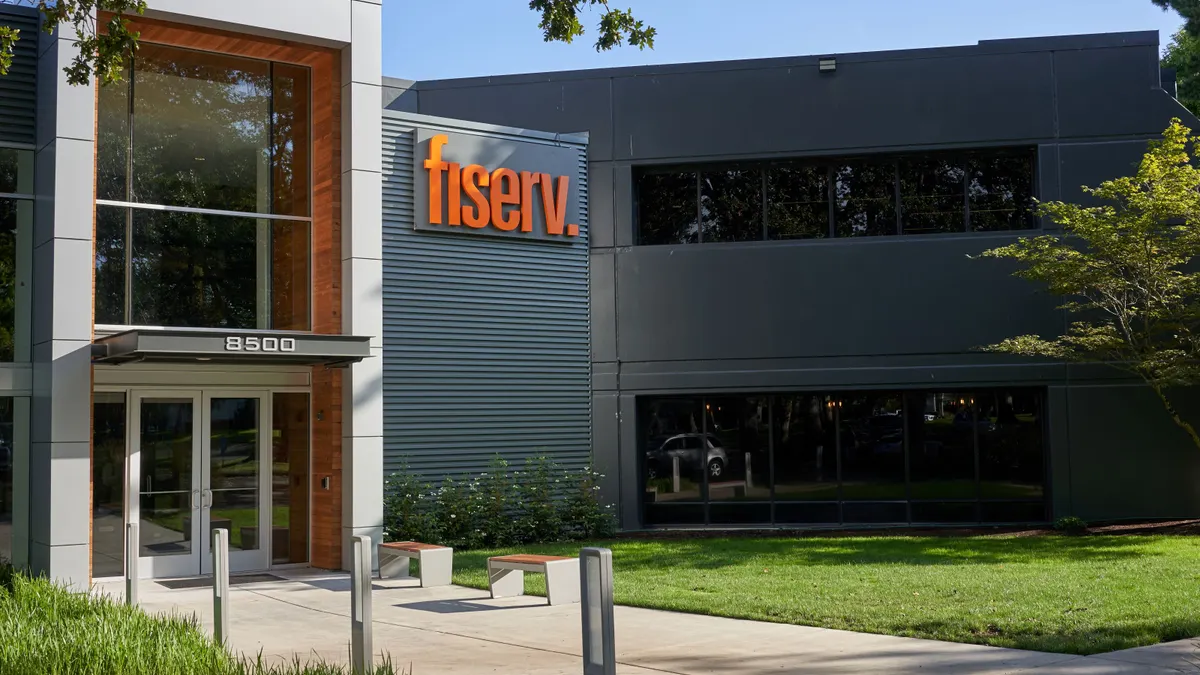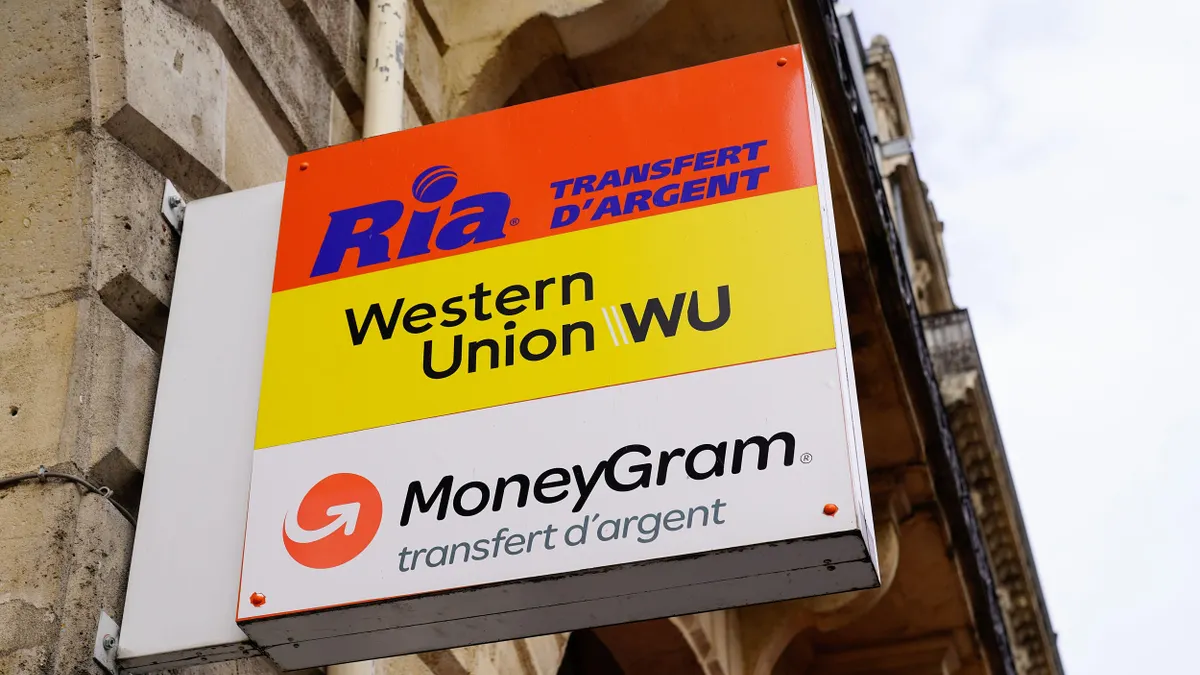Parthenon Capital Partners, FTV Capital and Great Hill Partners are among firms that carved out a niche investing in payments companies years ago, but they're not so alone anymore.
A wave of private equity, venture capital and hedge funds have targeted the payments sector in the past couple years and the surge in money directed at startup payment technology companies shows no signs of letting up. Now, fundraising by payments companies, valuations for them, and competition to invest in them are on the rise.
Just this month, U.S. payment fintechs announced about $1 billion in new investments, including $300 million for fraud prevention company Forter this week; $227 million for e-commerce subscriptions upstart Recharge; $175 million for employee on-demand pay company PayDaily; and $130 million for BNPL enterprise Sunbit.
That follows a record $6.03 billion raised in the first quarter by payment fintechs globally, according to research firm CB Insights. Fintechs generally posted record investments that quarter, but money directed at the payments segment nearly doubled and was higher than all eight other categories, save one.
Trends prompting a proliferation of payment companies began before COVID-19 arrived last year, but the deadly pandemic put them in overdrive as consumers stuck at home purchased more goods online and made more use of digital payment channels. That consumer momentum snapped sleepy, manually-driven businesses awake too, directing their attention to the need for digitization of everything from paying employees to handling vendor invoices.

"What has really happened is that payments evolved from an industry that was dominated by regulated financial institutions to one today that's really dominated by technology companies," said Zachary Sadek, a partner at private equity firm Parthenon in Boston.
There was a similar surge in investments in the payments sphere back in the 1990s, and then a lull after the turn of the century. But today, a new breed of payments companies is emerging with technological innovations, said Parthenon co-CEO Brian Golson who, along with Sadek, has spearheaded many of the firm's payment industry investments.
"Technology continues to provide merchants and processors with opportunities to develop new business models and new ways to do things that cause disruption," Golson said during a joint interview with Sadek.
Among its investments: payment provider BillingTree, cross-border payments company BlueSnap, payments processor Payroc, and payments technology company Cayan, which it sold for $1.05 billion in 2017.
Parthenon buys the companies when they're worth about $100 million to $500 million and takes them public or sells them at $500 million to $3 billion, tripling or quadrupling gross returns over five to seven years, the partners said.
They declined to provide specific returns, but the firm's plentiful fundraising from institutional investors, on whose behalf the firm invests, suggests clients have been pleased with prior results. Parthenon, which also invests in other financial, business and healthcare services companies, raised a $2.3 billion investment fund last year, equal to almost half the $5 billion it's raised since the firm's inception in 1998.
Delivering on promised returns could get tougher though, as an industrywide swell of money directed at payments companies drives up valuations and price tags, making it harder to turn a profit later when the companies are sold.
When Tinley Park, Illinois-based Payroc was hunting for an investment in 2019, Parthenon was one of 10 firms with an offer. Parthenon lost the contest, at least temporarily. When Parthenon executives heard Payroc opted for a rival, a firm contingent jumped on a plane to make another last-minute, in-person pitch, said Payroc President Adam Oberman. It worked.
Parthenon won over Payroc's management team with its vision for growth, besting Boston-based TA Associates with its final bid, and that meant taking less money, not more, Oberman said. Now, Parthenon owns a 36% ownership stake, but it's willing to put more capital into the company, he said.
Just under half of Parthenon's investments in the payments space have been for minority stakes, Sadek said.
Investors chasing payment companies include private equity firms, venture capital firms, and hedge funds, all vying for various size ownership stakes, sometimes locking arms in early stages for small stakes or going head-to-head later over larger stakes.
Meanwhile, industry giants such as Visa and PayPal are sizing up the young payments companies for acquisitions as they seek to buy up innovation they haven't developed. For instance, PayPal bought returns processing company Happy Returns this month. Those strategic buyers are also turning up the heat on investment competition.
Payments industry is "constantly reinventing itself"
The industry is "constantly reinventing itself," said FTV Capital Partner Robert Anderson, who focuses on payments investments from San Francisco. It's a unique industry in that it's been fragmented before and consolidated, but then it splinters again around new technologies, new markets and new merchant types, he said. That creates investment opportunities.
His firm is investing a $1.2 billion fund now, it's sixth since inception in 1998. He points to the 2017 sale of CardConnect to First Data for $750 million as a successful investment. FTV's portfolio currently holds the cross-border payments company Ebanx; salon and health payments app company Vagaro; and B2B payments player VPay, among others.
FTV relies on its payments expertise, track record of returns and relationship network to keep ferreting out the best deals, but it's becoming harder to keep payments investment opportunities under wraps. "I wish we could keep that our little secret for longer," Anderson said.
Yet the payments category has become so popular that it's attracting some of the biggest venture investors in the world, including Tiger Global Management, which just led a $300 million round of investments in payments fraud prevention company Forter. Coatue Management and Andreessen Horowitz have also zeroed in on payment targets.
"It really is a very deep and diverse space," said Alex Kern, a CB Insights senior analyst on fintechs. Payments startups continue to crop up and "pick at all the different ways that people move money to each other."
On the consumer side, new e-commerce avenues such as Shopify's tie-up with social media site Facebook will egg on new payment possibilities, and the buy now-pay later financing craze is spreading to new countries like India and Saudi Arabia, Kern said in an interview.
On the B2B front, formerly inefficient business practices are giving way to payment innovations. "Covid has just been a huge accelerant for these types of (back-office and operational) initiatives," Kern said. "Who's going to the office and write the check?" B2B payments companies like TreviPay and Tradeshift are answering that demand.
Gaps in cross-border payment channels are another opportunity for payment fintechs, Kern said. Companies like Remitly, Drip Capital and Wise are stepping into that opening.
All the payments sector investing is showing up in more private equity buyouts too, with 107 deals last year, the most since at least 2010 and almost twice as many as in 2019, according to research firm Preqin. The dollar value of deals surged in 2019 to a decade high of $26 billion on 64 transactions, thanks to a few mega deals, but also remained elevated last year at $18 billion, Preqin said.
All that investing is driving a bulge in stock offerings too. Paymentus and Flywire sold stock in initial public offerings this week, and other payment companies, such as Dlocal, are waiting in the wings. "The pipeline of IPOs is probably going to be pretty healthy," Kern said.
His prognosis: The payments "boom" has enough momentum from the consumer and business sides of the industry to last at least several more years, Kern predicted.






















